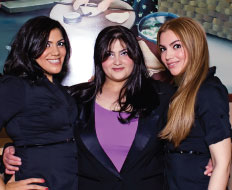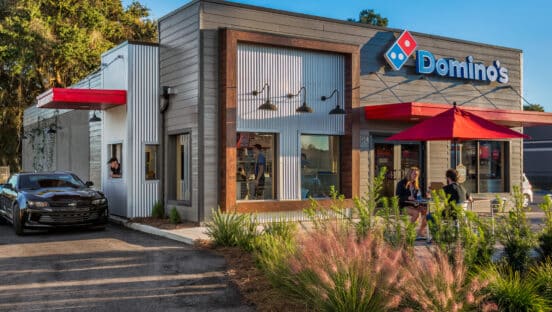Starting any business can be a difficult prospect, but in an industry where men have historically outnumbered women, the roadblocks to doing so can be even more challenging when you’re female.
For many female foodservice entrepreneurs, being taken seriously as a business owner is often the biggest challenge, says Arzu Esendemir, CEO and cofounder of Mediterranean fast casual Flatbread Grill in Upper Montclair, New Jersey.
For six years, Esendemir and her sisters, Gonca and Fusun, have fielded some uncomfortable questions; people have asked who the actual owner of the store was, whether their father was in charge, or if a male manager was available to make decisions.
Age was also a factor for the sisters, something others in the industry weren’t shy about pointing out. “We heard countless times from people, ‘You look too young to be doing this,’” Arzu Esendemir says.
Signing a multiunit franchise deal with Fransmart has helped the sisters win over some of the skeptics, but Gonca Esendemir, Flatbread Grill’s chief marketing officer, says they still encounter pushback from those accustomed to dealing with men.
Even while some in the industry have become more comfortable dealing with the trio over time, it doesn’t mean things are easy. “We have to prove ourselves and work a lot harder than any man in this industry,” she says.
Kathleen Wood, co-owner of frozen-yogurt concept Suzy’s Swirl in Gurnee, Illinois, has been in the industry for 30 years, but she says she and her business partners—her sister, Sue Tierno, and Tierno’s daughter Jen—still faced questions about whether they had enough experience to launch a business.
“People thought we were either very new or very naïve,” she says. But rather than take offense or feel discouraged, Wood finds it amusing when others sell the team short, especially with her deep industry background. She says the concerns expressed by others ultimately inspire the team to work even harder to prove the doubters wrong.
Despite the challenges, Arzu Esendemir says being female has occasionally worked to her team’s advantage. “I think you get a lot more attention for your brand if you’re a woman in this industry,” she says. For example, media attention has come their way from print publications, in spite of the fact that they don’t have a public relations team. “It’s people who discovered us, not us reaching out to them,” she says.
Ironically, the prospect of being underestimated because of their gender has often turned out to be an advantage for the women at Suzy’s Swirl. Sue Tierno says people initially assume the three women don’t always know what they’re doing. “I think we amazed a lot of people because we did know people,” she says. “We had connections, and we knew who to call.”
The women pooled their complementary skills to form a powerful resource base, and rather than let others’ skepticism bring them down, Tierno says, her team uses it as inspiration. “Whenever we’re given a ‘no,’ we always turn it into a ‘yes,’” she says.
Fortunately for women launching their own quick-serve concepts, Wood says, being female is increasingly becoming less of an issue. Groups such as the Women’s Foodservice Forum have elevated the discussion about women in business to the national level and have helped make the presence of women much more common.
Marie Osmunson, founder and CEO of Chez Marie—a supplier of veggie patties to quick serves and other retailers in the Oregon area—says she’s been surprised at the amount of support she receives, even from people she doesn’t know.
Yet even if others question their abilities or plans, Tierno says, women should trust their instincts when it comes to opening their own brand. “It’s so powerful to listen to that voice in your head, and if it’s saying this is the time to do it, then go ahead and do it,” she says.
Women should also be ready for the roller-coaster ride that comes with being an entrepreneur, Gonca Esendemir says. The depth of the lows and the extent of the highs may surprise those who are just starting out.
“There are probably going to be nights you’re going to spend hiding in the corner wanting to cry and give up, and there will be moments you’re going to be patting yourself on the back,” she says, adding that it can sometimes be difficult to find the outside support and encouragement needed to push through the tough times.
She says that remembering it’s a long, hard road will help women continue forward, even when people tell them to give up.
Osmunson echoes that call for staying the course, and adds that women shouldn’t let anyone tell them they can’t do it.
“Don’t be afraid, and believe in yourself,” she says, noting that rock-solid confidence must be paired with fierce determination as the business moves from concept to launch to success.
She also says it’s important to remember that there are difficult issues women will need to overcome along the way. “You have to be really willing to work hard and to work all hours,” Osmunson says.
Arzu Esendemir says in order to find success and make sure the business stays on the right growth track, women must “stick together and think like men would think.”
“What I mean by that is, throw your emotions out the window,” she says, noting that women must think about themselves, their business, and their future when making decisions.
“You can’t think with your heart sometimes. You have to really look at the numbers and think with your head.”










